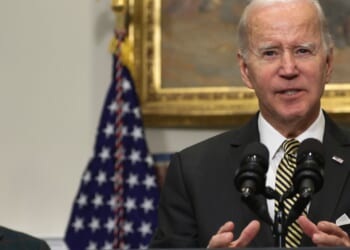If Trivial Pursuit had been designed by economists
If would have had 100 questions and 3,000 answers.
—Ronald Reagan
Economics has richly earned its label as “the dismal science,” that is unless it’s being practiced by Professor Thomas Sowell, my nominee for the smartest guy in the republic. Sowell has managed to earn a Ph.D. in economics and work in the field with its charts, graphs, and soul-sapping jargon for decades while still maintaining the ability to think, write, and speak clearly. A truly impressive achievement.
Epstein … went on to ask if “the augurs of old exhibited as much confidence as modern economists do”…. My guess is no.
One of P.J. O’Rourke’s contributions to the world’s understanding is his spot-on explanation of the difference between mico- and macroeconomics. The late, great P.J. instructed us (quoting from memory as I can’t recall where he said or wrote it): “Microeconomics are things economists are specifically wrong about, while macroeconomics are things economists are wrong about in a general sort of way.”
Just so. Some sarcasm here, but a lot of truth as well. And Brit Hume recently reminded us on Fox News that the supposedly savvy economists on Wall Street, home to some of the most jittery people in the republic, have predicted 10 of the last three recessions. Clearly the bulls and bears march to their own drummers, and they aren’t going to share their tunes and rhythms with economists. Or anyone else, come to that.
All this came to mind when I read Joseph Epstein’s op-ed piece in last Thursday’s Wall Street Journal. In his column — featuring the insights and humor we’ve come to expect from Epstein’s work — he compares today’s economists to the augurs of ancient Rome. These worthies of the past, having no access to charts, graphs, and impenetrable jargon, examined sheep entrails, flight patterns of birds, or the shape of clouds to determine how the gods were disposed, what the future held, and what enterprises could be expected to prosper and which fail.
Epstein suggests that for predictions, current economists, with all their modern mummery, offer little improvement over the old augurs. He went on to ask if “the augurs of old exhibited as much confidence as modern economists do when interpreting their omens.” My guess is no. The talking head economists on whom I’ve abused otherwise good time viewing and listening to (I counsel against this) have shown little in the way of humility. They may be in error, but they’re rarely in doubt when dispensing their opinions. (And we all know what Inspector Callahan said about opinions.) Save for this unseemly hubris, one might be inclined to cut economists some slack, as they face the formidable task of sorting and predicting an almost $30 trillion economy roiled by billions of moving parts.
Casey Stengel (and James Thurber before him) famously said: “You could look it up.” And you could. With a minimal amount of research the won-lost records of economists’ predictions are as readily available as the won-lost records of Major League pitchers. The take away is that asking a highly credentialed economist what is over the horizon may be more reliable than asking your maiden Aunt Eunice (who’s lead a sheltered life), but not much. And the old girl may be on to something that Dr. Know-It-All has had his head buried too far up his graphs to notice.
It’s said that an economic question posed to 10 different economists is likely to yield at least 15 different answers. No doubt true. This analytical scattershot has less to do with the competence, or lack of it, of the economists involved than with the fact that there is an untold number of schools of economics, holding contradictory views of how the economy works. These disparate starting points — ranging from Marxists on one end to free-market purists on the other with stops in between — drive vastly different conclusions, making the acute observer reluctant to bet the mortgage money or the business on any of them.
This deconstruction is useful now that President Trump’s ever-changing and predictability-destroying tariff policies are driving economists to general quarters, taking to the air and the page in an attempt to explain where it will all end.
Investors don’t know whether to invest. Banks don’t know whether to lend. And business owners don’t know whether to expand, hold, try to sell, or chuck it all and enter the clergy like their mothers wanted them to. Help is needed. But so far, like in so many other areas, analyses of the amazing moving tariffs by economists has mostly followed a political party line. Democrat economists warn Trump’s tariffs will make life on Earth nasty, brutish, and short again. Republican economists predict the tariffs will lead to peace, prosperity for all, and an end to erectile dysfunction. (OK, I made that last part up. But you get the picture.)
I’ll admit I have no idea how this will shake out. No help forthcoming either from economists or from Aunt Eunice. I’m content to await developments, which will surely follow.
READ MORE from Larry Thornberry:


![Reality Hits Adam Schiff in San Francisco—It’s Not Pretty for Democrats [WATCH]](https://www.right2024.com/wp-content/uploads/2025/04/Reality-Hits-Adam-Schiff-in-San-Francisco—Its-Not-Pretty-for-350x250.jpg)


![Trump’s White House Trolls Illegal Alien Gangs With Hilariously Brutal Video [WATCH]](https://www.right2024.com/wp-content/uploads/2025/03/1742261427_Trumps-White-House-Trolls-Illegal-Alien-Gangs-With-Hilariously-Brutal-350x250.jpg)


![James Comer Hints at the Epic Behind-the-Scenes Effort Targeting the Deep State [WATCH]](https://www.right2024.com/wp-content/uploads/2025/04/James-Comer-Hints-at-the-Epic-Behind-the-Scenes-Effort-Targeting-the-350x250.jpg)


![Dem Strategist James Carville Goes on His Most Delusional Rant to Date [WATCH]](https://www.right2024.com/wp-content/uploads/2025/03/Dem-Strategist-James-Carville-Goes-on-His-Most-Delusional-Rant-350x250.jpg)





